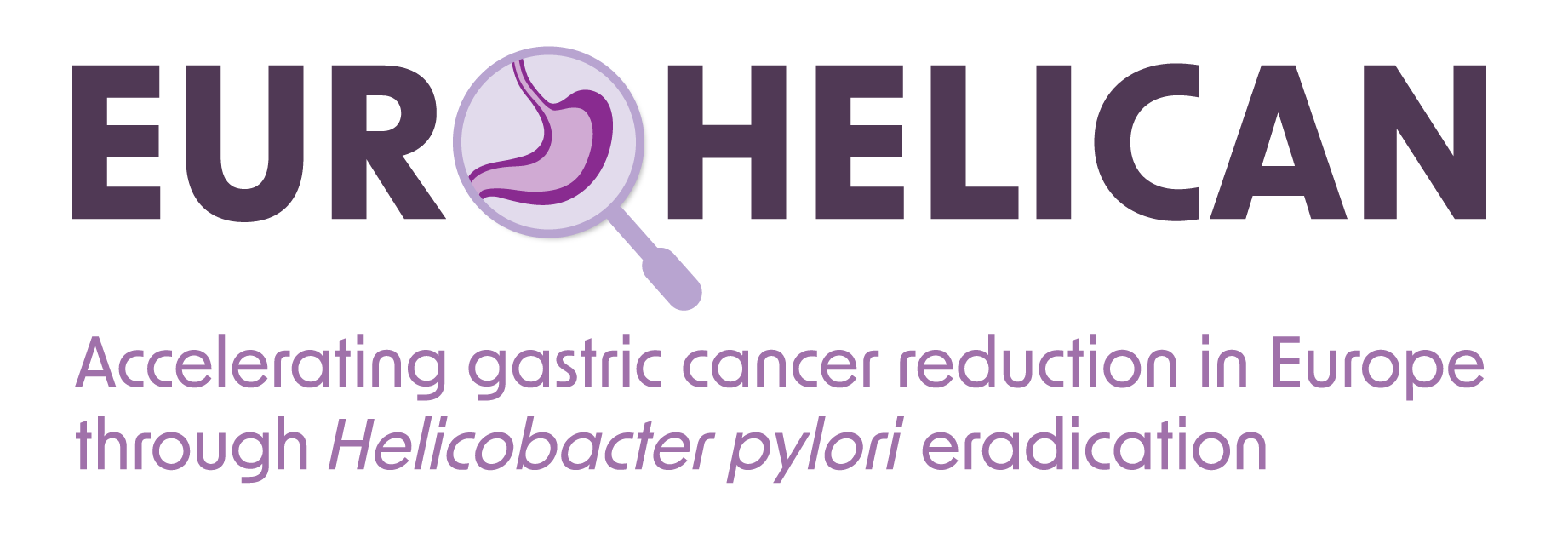EUROHELICAN
Accelerating gastric cancer reduction through Helicobacter pylori eradication
Accelerating gastric cancer reduction through Helicobacter pylori eradication
‘’Gastric cancer is an important cause of disease and death in Slovenia. The strategy ‘test and treat’ Helicobacter pylori infection (H. pylori) is recognised as the most effective measure of prevention of gastric cancer. H. pylori causes a number of disease signs that worsen the quality of life, which is an additional reason why treating the detected infection is proven to be beneficial and medically indicated for the patient.’’

Gastric cancer, with more than 1 million new cases and almost 800,000 deaths worldwide in 2020, is the fifth most frequently diagnosed cancer type and the fourth most common cause of cancer death worldwide. In Europe, gastric cancer is still an important public health issue, with the regions of Central and Eastern Europe having the highest gastric cancer incidence, second to Eastern Asia only, worldwide. Five-year survival of gastric cancer remains poor, in the range of 20–30% in most countries, but with persisting international disparities. In Europe, gastric cancer has a poor prognosis with 5-year relative survival rate between 19–30%. Despite the recent therapeutic progress, the 5-year overall survival has not been significantly improved for the last decades in most of the European countries. Prevention remains the best way to decrease the mortality related to gastric cancer in Europe.
The project aims to contribute to the improvement and fostering of health in the European Union by contributing to Europe’s Beating Cancer Plan’s objective to prevent gastric cancers caused by H. pylori infections. EUROHELICAN’s objectives include 1) demonstration of feasibility and acceptability of the proposed population-based H. pylori test- and treat strategy in a community health service setting, 2) evaluation of potential long-term adverse effects of the proposed strategy and 3) establishment of a set of minimum standards for the implementation and impact evaluation of the strategy that can be adopted in Europe and globally.
The results of this project will help policymakers to include population screening and H. pylori treatment strategy as one of the health care priorities for the prevention of gastric cancer in high-burden environments and population groups, balancing efficiency, feasibility and acceptability and potential adverse effects. As a result, this will help to reduce stomach cancer in Europe, preventing a significant loss of life.
As Slovenia is one of the European countries with a high incidence and mortality from gastric cancer, the results of the project will be directly useful for planning measures in Slovenia.
The results of both studies will add scientific findings on the effects and feasibility of the “Test and Healthy” strategy by H. pylori and contribute to the evidence in this area.
All materials will be published on www.nijz.si.
Project Duration: 1. November 2022–30 April 2025
Supporting Organisation: National Institute of Public Health (NIJZ)
Project Partners:
Financing: HaDEA (European Health and Digital Executive Agency)